(DGR brings us a dual review of two gloomy albums released in April, by Italy’s Novembre and Sweden’s October Tide.)
The month of April has proven to be rather interesting if you are a fan of a very specific, European-flavored branch of melancholic doom metal. Sometimes referred to as melo-doom — for lack of a better short-term genre-naming — and other times described as being ethereal, this branch has seen something of an explosion in recent years. One of the results has been the re-formation of quite a few acts, and April has brought us releases by two of them, one that has effectively been re-formed for some time and one that is returning after a nine-year hiatus.
Coincidentally, both groups also happen to be named after months themselves, with Novembre releasing their come-back album Ursa on April 1st and October Tide released their third post-revival album, Winged Waltz, on April 22nd. Long story short: If you happen to inhabit the incredibly weird niche of being a fan of the prettier side of doom and also a huge fan of months and stupid coincidences, holy shit was April the month for you.
NOVEMBRE — URSA
Not to lay all my cards out on the table, but ages ago Novembre were a very important band for me. A much younger version of myself, about a decade back at this point, hot off the heels of getting into groups like Katatonia, Insomnium, Rapture (not the indie-ish one, but the one that gave us songs like “Transfixion” and “Raintracks” and would eventually have a member or two who would go on to join Ensiferum), and a handful of other melancholic rock and doom groups.
Novembre were part of that DGR-as-a-sad-sack era of music listening, and the three-piece of Dreams D’Azur, Materia, and eventually The Blue would become a large part of that ever-rotating playlist. After The Blue-era, Novembre would go on an extended hiatus and then in 2016 would reuinite to release this new album on April 1st known as Ursa.
Novembre are one of those bands where it is incredibly difficult for me to stay completely objective, as there is a ten years’ younger, senior-year-of-high-school version of myself who has been listening to Ursa alongside the current-day, more jaded and longer-haired incarnation of your lovely author, who has been just absolutely screaming to say something about Ursa and what it’s like coming back to the band after nine years and discovering that the new album release was, in fact, not an April Fool’s Day joke.
HOLY FUCKING SHIT THIS IS SO FUCKING GOOD YOU GUYS ITS PERFECT ITS JUST LIKE THE LAST FEW ALBUMS ALSO HOW AM I STILL IN HIGH SCHOOL
And now, for a more nuanced take from your loving reviewer.
Even though it has been nine years since Novembre’s last release, one spin of Ursa makes it seem like the band never left. It is, by and large, the definition of a come-back album. It plays it safe and feels like a natural progression for the band that gave us Materia and The Blue — with Ursa feeling like an atmospheric combination of the two, and goddamnit you guys, it’s kind of awesome.
If you weren’t a fan of the band during that era, then Ursa will likely leave you feeling cold, because the album is chock-full of melodic guitars and clean singing, mixed with a hefty dose of growls to help punctuate finer points within each song. Ursa is an atmospheric and pensive sort of album. Novembre shifted away from full-blown doom some time ago, instead choosng to write the sort of miserable metal that would fit alongside sitting in a windowsill watching the rain fall. It’s a livelier and lighter take on feeling like absolute garbage, and there are moments of beauty interspersed throughout the whole disc.
Ursa seems to move in two parts. The opening batch of songs are all a little faster-moving and are the ones with the designed-to-be-infectious melodic lines within them, and then the back half of the disc tries to slow things down and takes a turn for the darker. It’s on the back half of Ursa that you’ll find the heavier guitar lines and the more straightforward misery.
Opening tracks like “Australis” and “The Rose” — the one-and-two leadoff punch — are both quicker-moving songs where even the growled lines will have you humming along. It seems that the time between albums hasn’t gone to waste for Novembre, because off of those first two tracks you get a serious sense that the band have an arsenal of catchy parts tucked away for much of Ursa. Even when “The Rose” goes for its full meditative closer that its intro lines hinted at, it is still the sort of line that can hammer into your head and absolutely will not let go.
Ursa’s third song, “Umana”, is a personal highlight — probably the best combination of vocal lines that Novembre have on this album. It has such a perfect combination of absolutely miserable screams, sung vocals, spoken bits, piano, and guitar work, that it seems to transcend the whole disc. It makes six minutes fly by, and the heavier part that kicks in during the back half of the song is just great, with an infectious drumming performance backing the whole affair. “Umana” is a standout track in an album filled to the brim with awesome songs.
“Oceans Of Afternoons” is where Ursa signals that it is going to shift into slower tempos for the back half of its run. It is where the band let “catchy” float by them into the sea and make a break for the strictly atmospheric. One of the things you’ll notice on Ursa is that Novembre make significant usage of seaside ambience, making it seem like the listener is in a dingy just lost at sea. “Oceans Of Afternoons” plays that up, because alongside its more meditative approach, you even get the sound of waves crashing and birds flying close to shore.
“Agathae” and “Fin” — yes, the band called the last song on Ursa “Fin” — are two of the longer songs on the album, with “Agathae” and its folksy trappings coming in at about nine-and-a-half minutes and “Fin” just barely limping over the seven-minute mark. Those two songs are the truer melodic doom (melo-doom) songs present on Ursa, with the songs around them playing heavily with pensive atmospheres and painting azure soundscapes.
Of course, it also needs to be noted “Agathae” is an entirely instrumental song, starting out as almost a folk-metal song with its jaunty opening riff that quickly descends into some heftier heavy-metal chugs at the halfway point, before increasing the tempo into noisy chaos for a scant few minutes. Keeping in mind that this comes right after Ursa’s leadoff single “Annoluce”, “Agathae” actually feels like an extension of that track.
Ursa really is an album that feels like everything fans want when a group comes back. Each song is a demonstration that Novembre haven’t skipped a step and can still expertly delve into atmosphere and ambience like few others. There hasn’t been any sudden shift to their sound, and Ursa absolutely is comfort food for people who’ve been missing the band in the gap between The Blue and now. What does come as a pleasant surprise is that since Novembre haven’t missed a step, every song on Ursa seems to work, and they all flow into one another — making the album one of the more enjoyable listening experiences to hit this year.
It is one of those albums where once you hear the first song, you compulsively have to put the rest of the disc on — because the full album experience attains a dreamlike quality like few others can write, and there is a certain amount of joy to be found in that. If you were a fan of how Novembre sounded when they went quiet that handful of years back, then Ursa is a welcome release and is absolutely worth listening to.
https://www.facebook.com/Novembre-9166507723/
OCTOBER TIDE — WINGED WALTZ
Alas, but we can’t stay in the realm of the pretty and picturesque forever, can we? We can’t continue to commit heresy against the site’s name by claiming that an album that is almost 50/50 split between harsh and sung is an enjoyable experience alone, can we? No! We must provide some sort of levelling, something to tip the scales back to the heavy, to the extreme, to the… oppressive. And so, we turn to October Tide — whose latest release, Winged Waltz, hit towards the end of April.
Like Novembre, October Tide have a storied history of dooming the masses in their own right, having re-formed in 2010 after a decade-plus-long break. In the six years since 2010, the group have released three albums — the latest of which is our subject, Winged Waltz. It marks the second album that October Tide have recorded with vocalist Alexander Högbom on the mic, after his addition to the band for the album Tunnel Of No Light. Prior to that, the band had In Mourning vocalist Tobias Netzell for one disc, A Thin Shell.
A Thin Shell was a very ethereal sort of melo-doom album, heavy on the melodic side of their genre descriptor. Its followup, Tunnel Of No Light, went in the opposite direction and leaned heavily on the doom side of the group’s tastes. A Thin Shell could at times be described as pretty, and its sibling Tunnel Of No Light was downright oppressive at times. It was an album that didn’t just paint with sadness and portray misery, it tried to drown you in it. Winged Waltz seeks to unify the two sides, and the results are mostly successful.
One of the more reliable things about October Tide since their re-formation has been their strict adherence to a plodding tempo; they take their doom literally, and at times stretch for the funeral realm with just how slowly they move. This was one of the things you could place bets on: Death, taxes, and the Norrman’s and Co. were going to take their sweet time getting to the point (as if they wrote album reviews for a heavy metal website like ours).
Like its predecessor Tunnel Of No Light, Winged Waltz can be absolutely draining on the senses at times, with Alex breaking out some almost torturous high screams that haven’t been heard much from him outside of his work with October Tide. That’s why it’s a bit of a surprise once you get past opening dirge “Swarm” and its crawling-through-muck follower “Sleepless Sun”. Both songs are the beneficiaries of some tasty guitar leads and heavy drumming — especially as the double-bass rolls come roaring in during “Swarm” — but are still both mid-tempo in their flavorings. “Sleepless Sun” has the catchier of the two guitar sections, written with an ear for melody in mind.
“Reckless Abandon” is the afore-mentioned surprise, because it and a couple of other songs on Winged Waltz actually move with a slightly quicker pace. After being dragged on the ground through the first two songs, the band going almost death metal on “Reckless Abandon” is a shock to the system that helps keep the album going. It only seems to slow down into its doomier aspects for brief moments — although you must bear in mind that “Reckless Abandon” is about as fast as the band move on Winged Waltz.
The only other song similar to “Reckless” is the grind-length-in-comparison song “Nursed By the Cold”, which comes in at a snap four-and-a-half minutes. Most of the songs on Winged Waltz stick to the doom standard of between six and eight minutes, with the final track, the absolutely miserable “Coffins Of November”, clearing the bar for another thirty seconds. Long story short, eight tracks may not look like a lot up-front, but those eight tracks pack in a dense fifty-plus minutes of music this go-round.
What really helps October Tide on Winged Waltz are a couple of things: One is that its members are old-hat at this style of music; they have a knack for figuring out how to keep these songs moving and just the right riffs and leads to keep things interesting. The second is that October Tide have shown a taste for the melodic side of doom. There are ways to make songs like this move much more slowly, and far heavier, but a lot of that in other hands seems to rely on the low end and a heavy sense of atmosphere and a very giant-walking-the-earth tempo of music writing — you could get up and make a sandwich between guitar strums for some of these bands.
October Tide, whether by design or not, have moved in a more guitar-centric path — meaning much of the band’s music is focused on the interplay between the vocalist and the guitars, which can help explain the solo that pops up for a brief moment in the opening bits of “Lost In Rapture”. This is the sort of music where the rhythm section functions as a precise mechanism, keeping things heavy but still moving onwards without dragging their feet.
One of the few times when the drumming and bass-playing really sticks out is in the back half of the song “Perilous”, which shifts from a heart-wrenching doom track into a chugging death metal song for a brief moment. The rhythm section absolutely hammers those chugs out in this brief moment of balance that October Tide provide.
Winged Waltz straddles a fine musical line between its two siblings, A Thin Shell and Tunnel Of No Light, and musically tends to lean a bit more towards the latter than the former. This makes sense, as October Tide’s lineup has remained pretty stable since recording that disc — but Winged Waltz still makes efforts to bring in some of the more ethereal and atmospheric elements that the group’s 2010 album had. It’s a little more melodic-lead-heavy than Tunnel Of No Light this time around, and songs move at a slightly faster pace, but Winged Waltz remains about as miserable as they come.
It’s not a suffocating stone being laid across your chest this time, but Winged Waltz still wallows in its depression, keeping it heavy and somber for the fifty minutes it asks to spend with you. Winged Waltz continues the trend of October Tide acting as a flag-bearer for this specific branch of doom, with all of its beautiful devastation in hand.
https://agoniarecords.bandcamp.com/album/winged-waltz
https://www.facebook.com/octobertideband/

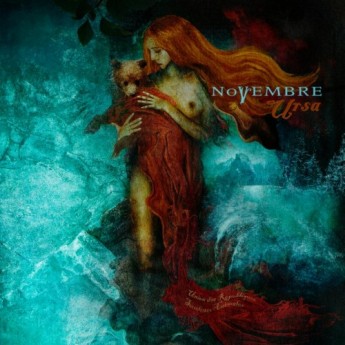
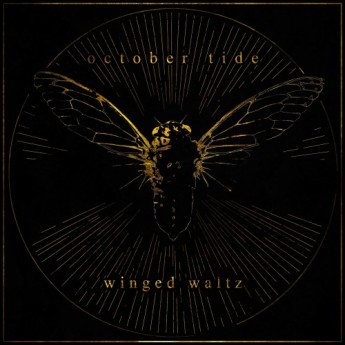
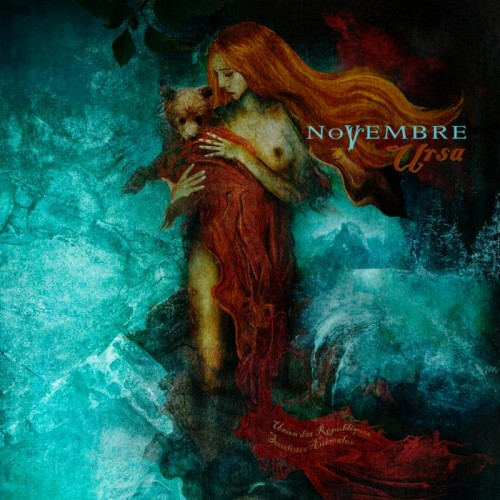
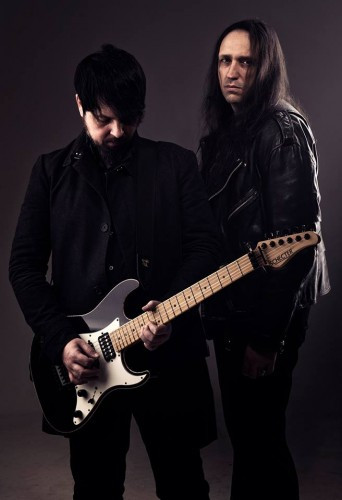
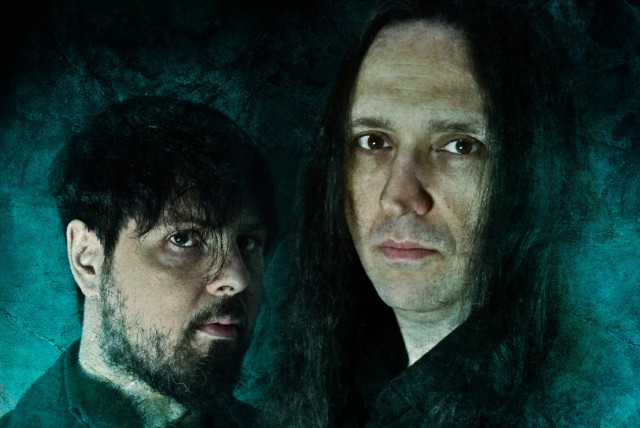
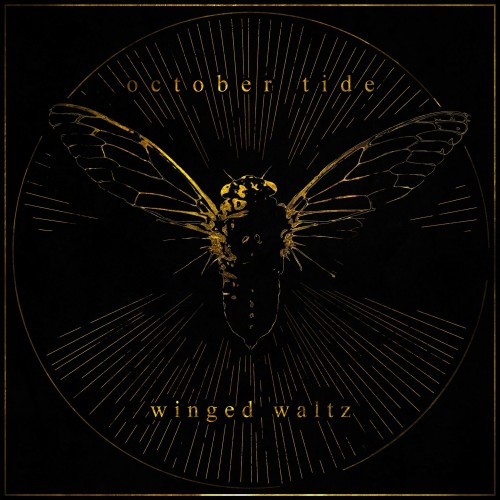
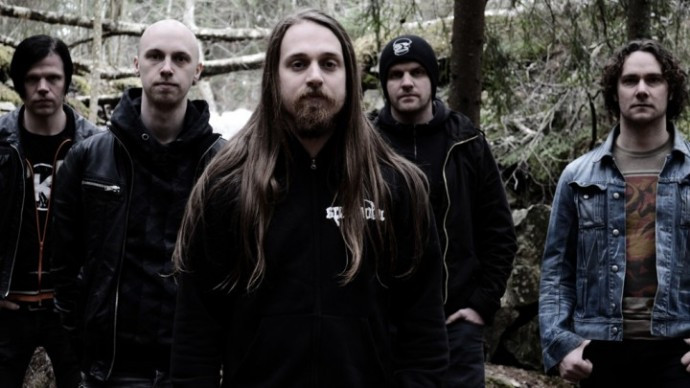
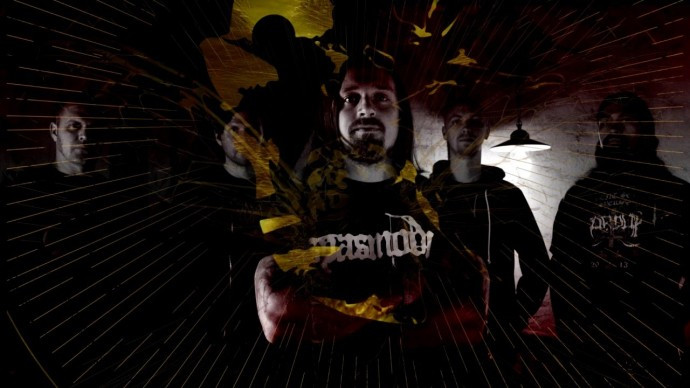
Definitely stoked on that new Novembre, though I wasn’t around for the last release (in my defense, I was finishing up elementary school back then).
Harsh.